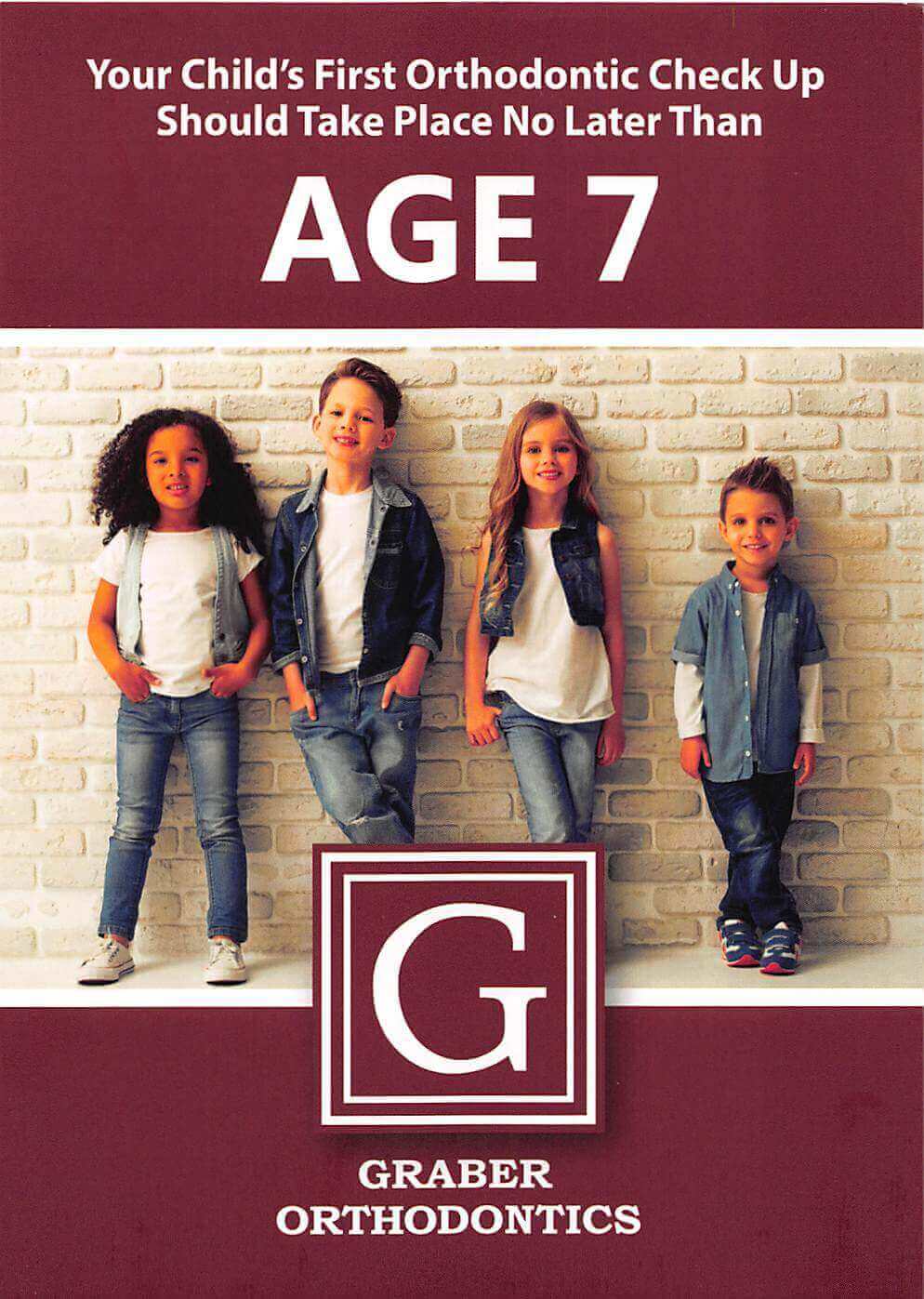Even through orthodontic treatment most often begins between the ages of 11-14, the American Association of Orthodontists recommends a check-up with an orthodontist no later than age 7. At this age, Drs. Graber and Gyllenhaal can determine if your child’s tooth and jaw development are on track. Our orthodontists can spot subtle problems with jaw growth and emerging teeth while some baby teeth are still present. If needed, intervening before a problem gets worse can help.
Early orthodontic intervention can help to:
1) Guide jaw growth
2) Identify impacted or missing teeth
3) Intercept harmful oral habits (such as tongue-thrusting or thumb-sucking)
4) Correct overbites or underbites
5) Create more space to allow permanent teeth to erupt into a more favorable position
6) Reduce permanent tooth extraction
7) Improve appearance and self-esteem
While approximately 15-20% of children who will need orthodontics would benefit from early intervention, not every child needs a first phase of orthodontics. For those who do not require early orthodontic treatment, those patients will be placed on regular “monitoring” appointments to periodically evaluate their teeth and jaw development until the “right time” for orthodontics—or they may be told they need no orthodontic treatment at all! These dentofacial growth evaluations are most often complementary – with charges only incurred if or when services are rendered (x-ray, braces, retainer treatment, etc.)
If you would like to schedule an initial orthodontic evaluation or would like to know if your child would benefit from early orthodontic intervention, contact our office today to schedule a complimentary appointment.


0 Comments